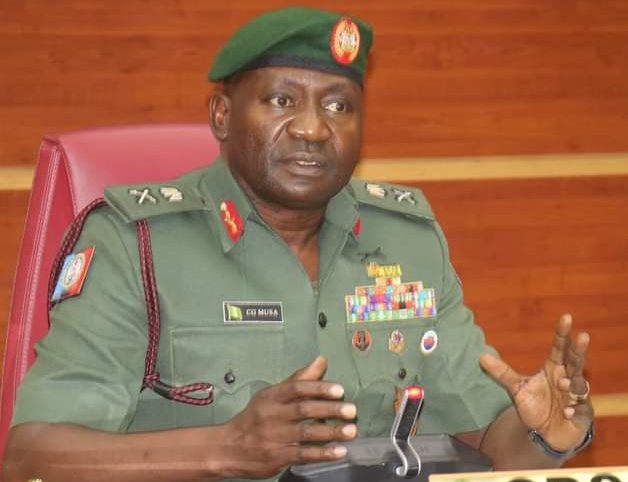The Chief of Defence Staff, Major General Christopher Musa, has lamented the delay in the trial of suspects handed over to civil authorities for prosecution.
About 2000 suspected Boko Haram terrorists arrested by security agencies had yet to be tried.
According to Musa, the slow pace of criminal trials was posing a challenge to the operations of the military.
A statement by the Director, Defence Information, Brigadier General Tukur Gusau, on Tuesday night, quoted Musa as saying this when the Kaduna state governor, Uba Sani paid him a courtesy visit in Abuja.
The statement partly read, “The CDS noted that one of the challenges facing the Military in the discharge of its duties is the administrative bottlenecks involved in the dispensation of judicial cases involving criminals handed over to the civil authority for prosecution.”
Musa was also quoted as saying the Armed Forces of Nigeria planned to review its operational modes.
He also assured that the military’s kinetic and non-kinetic operations would be bolstered to combat insecurity in the country.
“Major General Musa assured the governor of the AFN’s commitment to supporting all parts of Nigeria, especially Kaduna state to combat insecurity.
“According to the Defence Chief, the AFN is looking at reviewing its operational modalities to enhance capabilities for a better result. He added that kinetic and non-kinetic approaches to our operations will be strengthened to boost the fight against criminality in the country,” the statement added.
Gusau said Musa also stressed the need for youth engagement in meaningful activities to reduce crime across the country.
Speaking, the Governor commended the Armed Forces of Nigeria for their immense support to the state, while calling for more support to boost security in Kaduna and its environs.
Governor Uba Sani noted that Kaduna state is the heart of Northern Nigeria which needs relative peace and harmony to thrive.
He added that the state is willing to support the AFN with local intelligence and other necessary things to enable the military to discharge its constitutional responsibilities unhindered.
In this article

